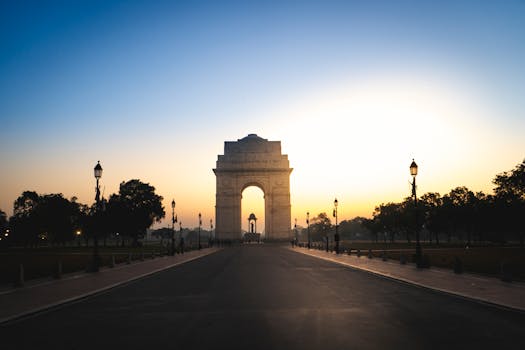The Melting Pot of Cultures in New Orleans
New Orleans is a cultural melting pot like no other. This city is a vibrant blend of French, Spanish, African American, Creole, and Cajun traditions, creating a unique and magical experience.
French and Spanish Influences
The French and Spanish left an indelible mark on New Orleans. From the architecture in the French Quarter to the street names and cuisine, their influence is everywhere. The French brought their love for food and celebration, while the Spanish added their flair for vibrant festivals and intricate ironwork.
African American Contributions
African American culture is the heartbeat of New Orleans. Jazz, Voodoo, and the famous Second Line parades all have roots in African traditions. The African American community has shaped the city’s soul, making it an unforgettable place to visit.
Creole and Cajun Traditions
Creole and Cajun cultures add even more flavor to New Orleans. Creole cuisine, with its rich sauces and bold spices, is a must-try. Cajun music and dance bring people together in joyous celebration. These traditions make New Orleans a true cultural gem.
The Vibrant Music Scene

New Orleans is the birthplace of jazz. The streets are alive with the sounds of trumpets and saxophones, creating an energy that’s hard to match. Jazz isn’t just music here; it’s a way of life.
Birthplace of Jazz
New Orleans is the birthplace of jazz. The streets are alive with the sounds of trumpets and saxophones, creating an energy that’s hard to match. Jazz isn’t just music here; it’s a way of life.
Second Line Parades
Second Line Parades are a must-see. These lively parades feature brass bands and dancing crowds, celebrating life and community. They are a true New Orleans tradition.
Influence of Voodoo on Music
Voodoo has a unique influence on the music of New Orleans. The rhythms and chants add a mystical element to the city’s soundscape. It’s a blend of spirituality and art that’s truly captivating.
Culinary Delights of New Orleans
Famous Dishes and Their Origins
New Orleans cuisine is world-famous for a reason. The multi-cultural influence combined with down-home cooking has created some of the country’s most beloved and unforgettable dishes. From Cajun jambalaya and crawfish boils to Creole gumbo and po’boy sandwiches, the flavors are as diverse as the city itself.
Influence of African and Caribbean Flavors
The rich culinary traditions of New Orleans owe much to African and Caribbean influences. These flavors have melded with French and Spanish cooking styles to create a unique gastronomic experience. Ingredients like okra, rice, and various spices are staples in many iconic dishes.
Popular Food Festivals
New Orleans is not just about eating; it’s about celebrating food. The city hosts numerous food festivals that highlight its culinary diversity. Events like the Coolinary New Orleans celebrate affordable fine dining with special prix fixe menus. These festivals are a gastronomic journey, showcasing the fusion of global flavors and culinary innovation.
Visiting New Orleans is like embarking on a gastronomic journey: the magic of food festivals around the globe explores the fusion of global flavors, cultural narratives, and culinary innovation at food festivals worldwide, celebrating the diversity of cuisines.
Historic Landmarks and Museums
The National WWII Museum
Dive into history at The National WWII Museum, the top-rated tourist destination in New Orleans. This museum offers an immersive experience with exhibits that bring the past to life. From D-Day to the Pacific Theater, you’ll find detailed displays and personal stories that make history come alive.
New Orleans Museum of Art
The New Orleans Museum of Art (NOMA) is a must-visit for art lovers. Located in City Park, NOMA features an impressive collection of fine art, from classic to contemporary. Don’t miss the outdoor sculpture garden, a serene space perfect for a leisurely stroll.
Historic Voodoo Museum
Step into the mystical world of Voodoo at the Historic Voodoo Museum. This small but fascinating museum offers a glimpse into the spiritual practices that have shaped New Orleans’ unique culture. Learn about Voodoo rituals, artifacts, and the influence of this tradition on the city’s history.
New Orleans is a city where every corner tells a story, and its museums and landmarks are the keepers of these tales.
Festivals and Celebrations
New Orleans is a city that knows how to throw a party, and its festivals are legendary. With over 130 festivals a year, there’s always something to celebrate. From food to music, and everything in between, the city’s vibrant spirit shines through its many events.
Mardi Gras Traditions
Mardi Gras is the crown jewel of New Orleans’ festivals. The city comes alive with vibrant parades, colorful costumes, and lively music. It’s a time when locals and visitors alike indulge in the revelry, making it a must-see event.
Jazz & Heritage Festival
The New Orleans Jazz & Heritage Festival is another highlight. This festival showcases the best of the city’s music scene, from jazz to blues to gospel. It’s a celebration of the rich musical heritage that makes New Orleans unique.
French Quarter Festival
The French Quarter Festival is a celebration of the city’s historic heart. With stages set up throughout the French Quarter, this festival features local musicians, delicious food, and a lively atmosphere. It’s a great way to experience the vibrant spirit of New Orleans.
Discover the vibrant spirit of New Orleans through exciting events and festivals! Explore the city’s cultural extravaganza with New Orleans & Company.
Whether you’re a music lover, a foodie, or just looking to have a good time, New Orleans’ festivals offer something for everyone. Don’t miss out on the fun!
Architectural Wonders
French Quarter Architecture
Uncovering the French Quarter’s architectural wonders! The French Quarter is a must-see for anyone visiting New Orleans. Explore the iconic architecture of the French Quarter in New Orleans. Admire the beautiful wrought iron balconies and intricate building facades. The blend of French, Spanish, and Creole styles creates a unique and charming atmosphere.
Garden District Mansions
The Garden District is home to some of the most stunning mansions in New Orleans. Wander through streets lined with grand, historic homes surrounded by lush gardens. Each mansion tells a story of the city’s rich history and opulent past. Don’t miss the chance to see these architectural marvels up close.
Historic Cemeteries
New Orleans’ historic cemeteries are unlike any other. Known as "Cities of the Dead," these cemeteries feature above-ground tombs and elaborate mausoleums. Take a guided tour to learn about the unique burial practices and the famous individuals laid to rest here. It’s a fascinating glimpse into the city’s cultural heritage.
The Role of Religion and Spirituality
New Orleans is a city where religion and spirituality play a significant role in daily life. The blend of different beliefs and practices creates a unique spiritual atmosphere that is both vibrant and deeply rooted in history.
Catholic Influence
Catholicism has been a cornerstone of New Orleans’ spiritual life since the city’s founding. The French and Spanish settlers brought their Catholic faith with them, and it has remained a dominant force. The city’s numerous churches, including the iconic St. Louis Cathedral, are testaments to this enduring influence.
Voodoo Practices
New Orleans Voodoo, also known as Louisiana Voodoo, is an African diasporic religion that originated in Louisiana. It arose through a process of syncretism, blending African, French, Spanish, and Native American spiritual practices. Practitioners of New Orleans Voodoo seek to live in harmony with the spirits and nature, and the religion emphasizes the importance of balance, respect, and community.
Spiritual Gatherings and Rituals
The city is also known for its diverse spiritual gatherings and rituals. From jazz funerals to second line parades, these events are not just celebrations but also deeply spiritual experiences. They reflect the city’s unique ability to blend the sacred and the secular, creating a rich tapestry of spiritual life.
Discover the rich culture and heritage of New Orleans through its unique blend of religious and spiritual practices. Whether it’s the solemnity of a Catholic mass or the vibrant energy of a Voodoo ceremony, the city’s spiritual life is a testament to its diverse cultural heritage.
Conclusion
New Orleans is a city like no other. Its rich cultural heritage, shaped by a blend of African American, French, Spanish, and many other influences, makes it a unique and vibrant place. From the lively music and delicious food to the colorful festivals and historic sites, there’s always something new to discover. Whether you’re exploring the city’s deep roots or enjoying its modern-day charm, New Orleans offers an unforgettable experience for everyone. So, pack your bags and get ready to dive into the magic of this incredible city.
Frequently Asked Questions
What are the main cultural influences in New Orleans?
New Orleans is a melting pot of cultures, with strong influences from French, Spanish, African American, Creole, and Cajun traditions.
Why is New Orleans called the birthplace of jazz?
New Orleans is known as the birthplace of jazz because this unique music style originated here in the early 20th century, blending African rhythms with European instruments.
What are some famous dishes in New Orleans?
Some famous dishes include gumbo, jambalaya, beignets, and po’boys. These dishes often reflect a mix of African, French, and Spanish flavors.
What is Mardi Gras?
Mardi Gras is a famous festival in New Orleans featuring parades, music, and vibrant costumes. It is celebrated before the start of Lent.
Are there any important museums to visit in New Orleans?
Yes, some important museums include The National WWII Museum, New Orleans Museum of Art, and the Historic Voodoo Museum.
What is the significance of the French Quarter?
The French Quarter is known for its historic buildings, vibrant nightlife, and as a central spot for cultural events and festivals in New Orleans.






